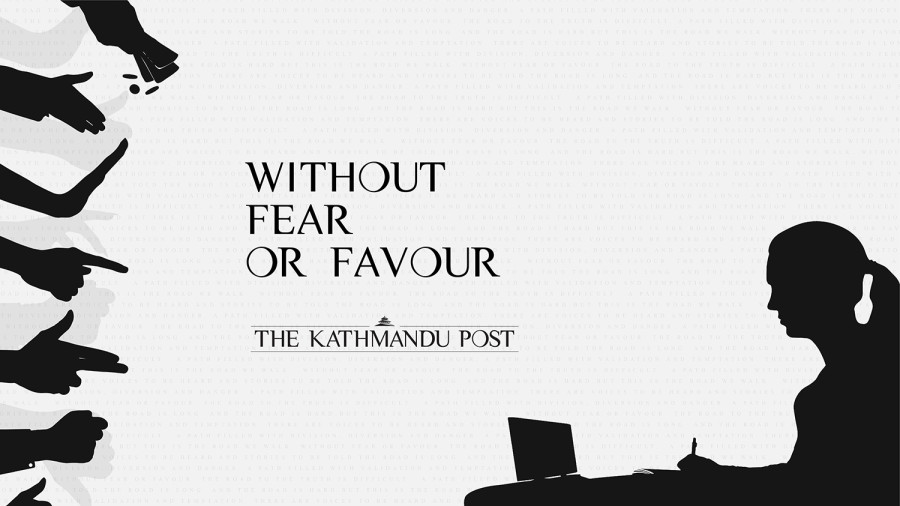Editorial
The Kathmandu Post’s next chapter
Telling the whole truth takes an effort, but in today’s world, not making an effort to tell the whole truth is not an alternative.
Twenty-six years ago, when The Kathmandu Post published its first edition, the country was undergoing a political and cultural transition. Democracy had just been reinstated and Nepal was opening up, culturally, economically and politically. Since then, together with its sister paper Kantipur, the Post has consistently stood for the values that exemplify that hard-won democratic ideal—representation and rights for all the people, freedom of expression and a free press, and a distinct distaste for autocracy. For all these years, the Post has asked for accountability and transparency, not just from those in government but from everyone with power and influence.
But for those of us in the business of holding people and institutions to account, be it in government or business, now is an extraordinarily rich time to be in journalism. Nepal, for the first time in many of our memories, has leapt into a new era after spending decades in political torpor. There have always been stories waiting to be written. Stories as abundant as the dreams promised by those in power in Kathmandu. Stories as vast as the hopes of millions of Nepalis in the isolated hills and plains who have been waiting to be noticed—and heard—by Kathmandu.
At the Post, throughout the past year, we have made gradual attempts toward telling these stories—not just in whose stories get told but who is telling the story. We’ve diversified our newsroom, in the belief that the storytellers matter as much as the stories they tell. In line with our new editorial standards, we’ve attempted to reflect in our journalism our belief that our duty is to the truth, to the community and to our readers—not to private business interests, our owners, or our advertisers.
Today, we’re taking that commitment forward with a promise to our readers: at a time when trust in the news media continues to decline, at home and abroad, we will practice our journalism with dignity, with earnestness, and honesty. We will write and report without fear or favour.
Since Adolph S Ochs, the former New York Times publisher, used the phrase in his declaration of principles in 1896, the term ‘without fear or favour’ has become a guiding motto for journalists around the world, despite the many challenges to fulfilling it. Today, we’re making it ours.
In printing these words below the masthead of the Post, we announce the next chapter of The Kathmandu Post. Our exposé on the decades-long exploitation of young girls at a prominent school in Kathmandu, the investigations into allegations of sexual harassment against a prominent lecturer at the nation’s oldest university, the delay in investigating the death of a Madhesi activist in police custody, and our deep dive into the monopoly by big beer companies are all attempts to write about power and influence without fear or favour—unblemished and unvarnished. These are the kinds of stories our journalists will strive to report.
The press, like any profession, is flawed. But when we make mistakes, we will own up to them, and apologise, with a commitment to do better. To make that commitment even more transparent, we have dedicated a section of the newspaper and our website to clearly communicate the stories that have been corrected or updated. The press, in any democracy, is necessary. So when we make mistakes, we implore you to engage with us, and when we get something wrong, hold us to account. We will hold those with power and influence to account, but as our readers, we are accountable to you.
Telling the whole truth takes an effort, but in today’s world, one in which readers are ultimately deciding what they read and where they read it, not making an effort to tell the whole truth is not an alternative. In fact, as journalists, it is going to be our ultimate test, one that will determine whether we rise or fall.
And as the free press, we cannot afford to fall.
Anup Kaphle
Editor-in-Chief
***
What do you think?
Dear reader, we’d like to hear from you. We regularly publish letters to the editor on contemporary issues or direct responses to something the Post has recently published. Please send your letters to [email protected] with "Letter to the Editor" in the subject line. Please include your name, location, and a contact address so one of our editors can reach out to you.




 20.72°C Kathmandu
20.72°C Kathmandu














